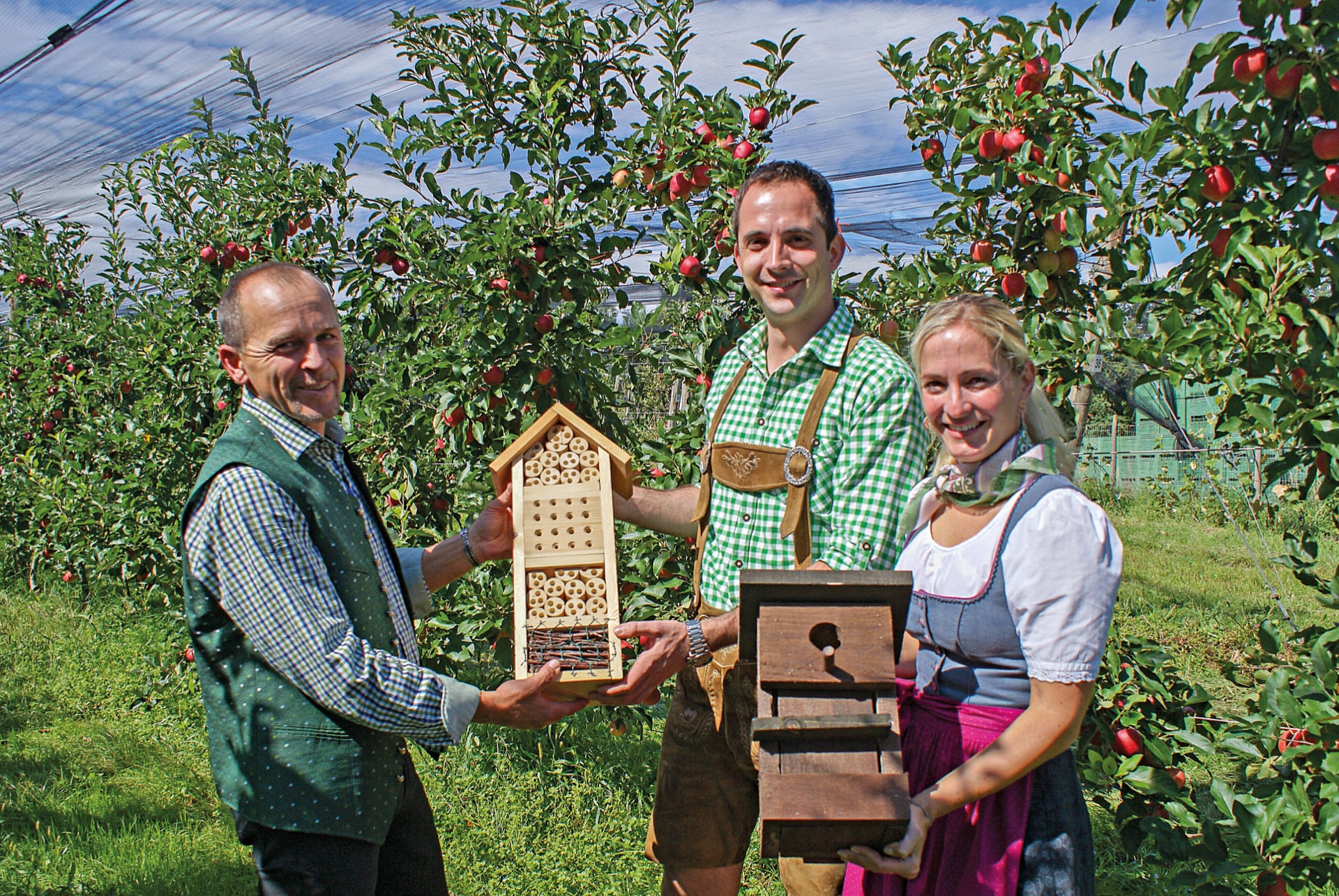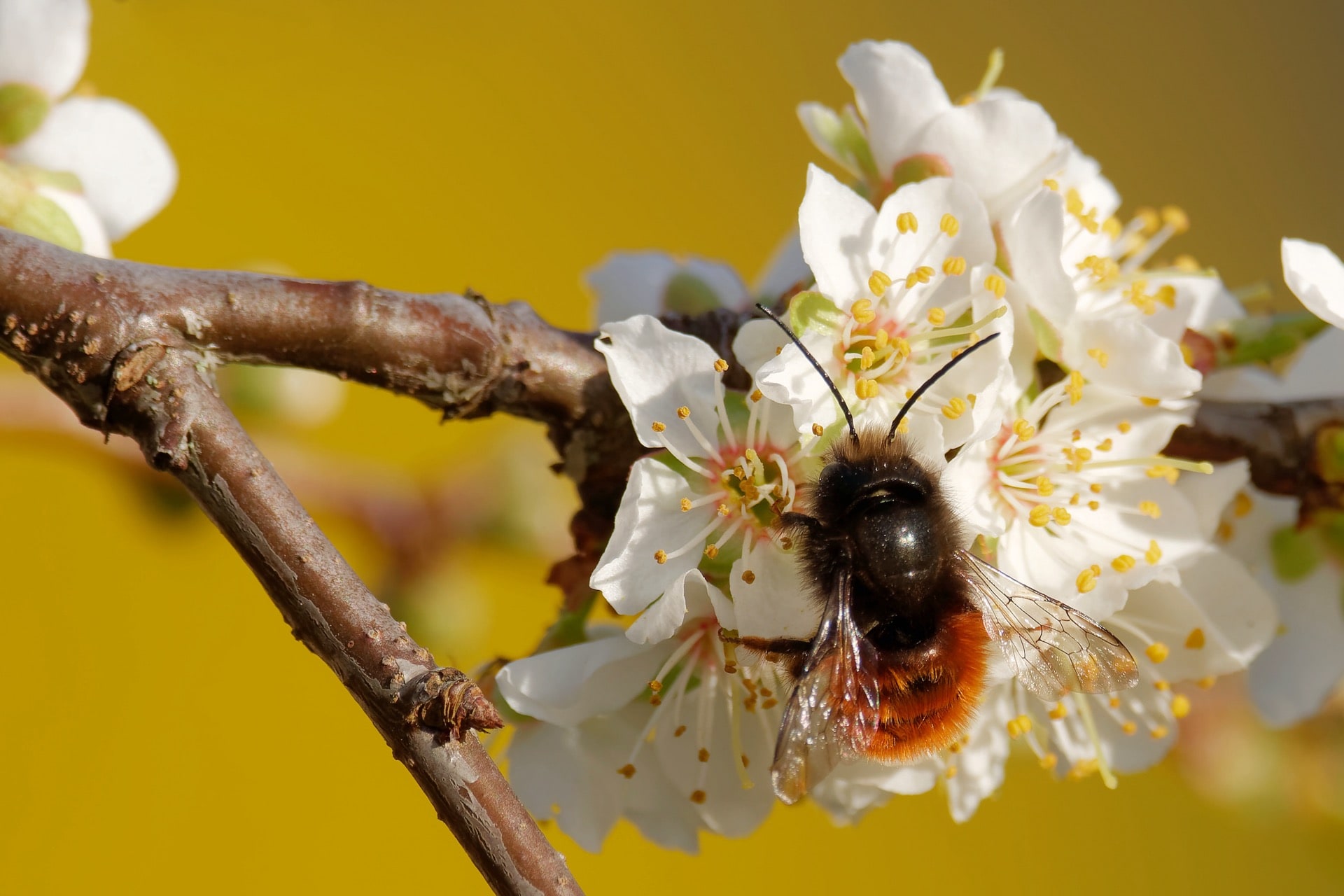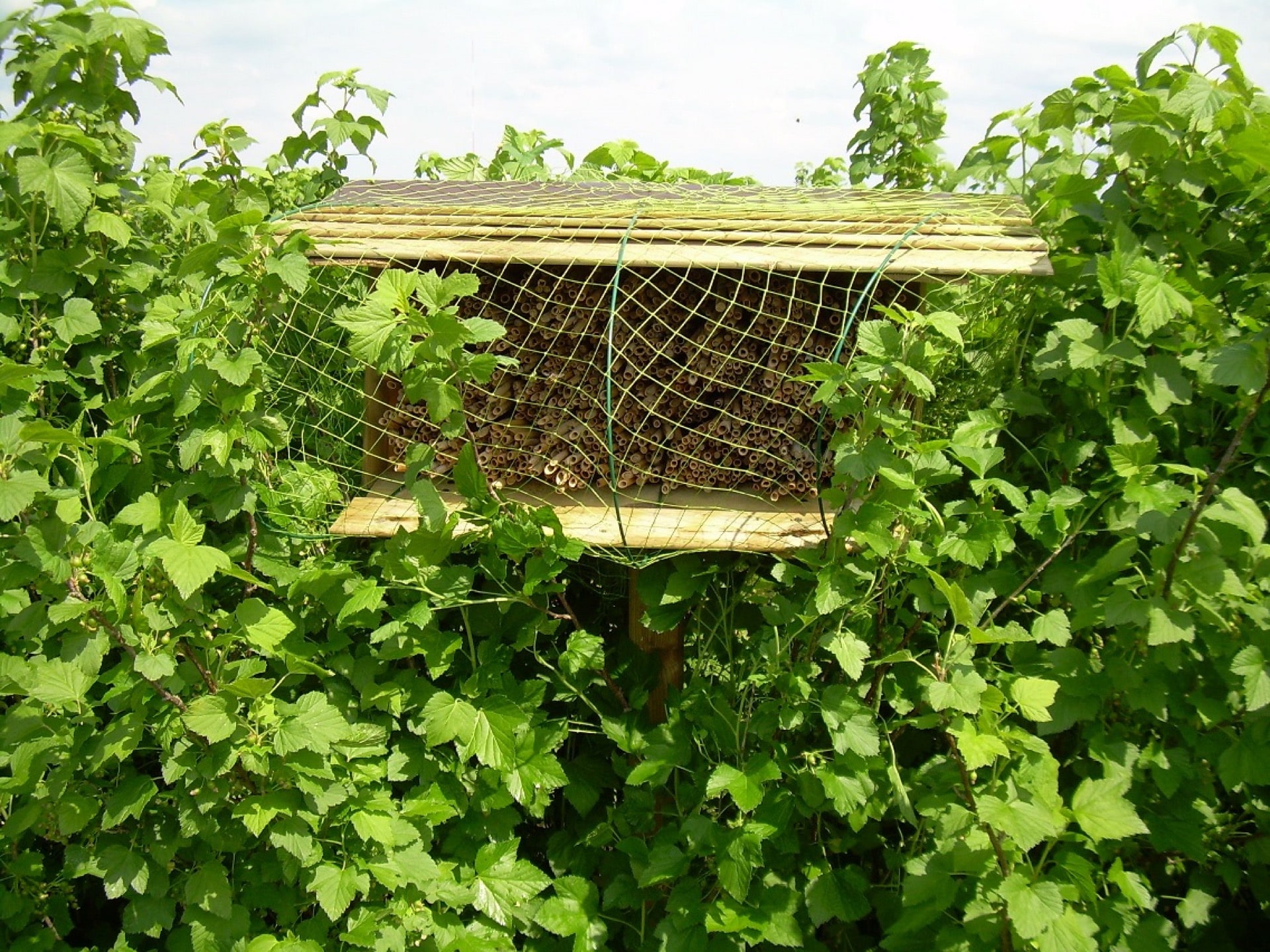We know that the number of bees around the world has now been in decline for years. Research hurries along to find out exactly why that is and what to do about it. Meanwhile, the fact that bee colonies ensure the pollination of almost 90% of our crops causes a devastating ecological problem: no bees, no crops. At Grünewald International we aim at supporting our farmers in achieving a bountiful harvest efficiently and in harmony with nature. Our programme promotes the use of the mason bee for pollination as one environment-friendly cultivation strategy on the path to ecologically sustainable farming. If the crops are to flourish so must the bees.
The mason bee (Osmia rufa) from the Megachilidae family of solitary bees lives in the wild all across Europe. Its name originates in the characteristic usage of clay in nest construction. Rather than building from scratch, the mason bee seeks shelter in pre-existing cavities such as hollow stems, poles and rotten tree trunks. These are furnished with small nesting cells made of clay and filled with pollen. During the completion of a single nesting cell one bee may pollinate more than 1,200 blossoms from among 150 different plant varieties. The ability to gather large amounts of pollen and their versatile taste ranks mason bees among the most effective pollinators.
Our programme currently employs mason bees in the cultivation of apples, strawberries, raspberries, black currants and cherries. The small and harmless insects are extremely easy to keep and do not require the allocation of extensive beekeeping equipment. But, given that natural nesting places on groomed fields are scarce, we have to provide the bees with what little they need to make our growers’ orchards their home. Since the autumn of 2012, Grünewald International has already supplied 70 plantations with over 100 simple nesting kits to encourage permanent mason bee colonization. We are thrilled that the program has become this popular with our farmers and hope that fields buzzing with mason bees will lead to increased annual yields and further enhance the quality of our farmers’ crops.



